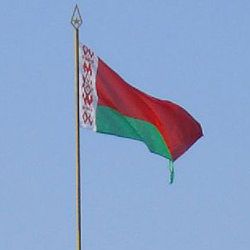Human Rights House Foundation statement at the Interactive dialogue with the United Nations Special Rapporteur on the human rights situation in the Republic of Belarus
Check against delivery
Thank you, Mr Chairperson,
The Human Rights House Foundation welcomes the report of the Special Rapporteur on the human rights situation in Belarus, as well as his work and his extensive outreach to victims and Belarusian civil society to gather first-hand information of human rights violations in the country, as reported by the Special Rapporteur in the methodology of his report.
The human rights situation in Belarus has not improved. Over the years, Belarus has demonstrated an unwillingness to reform its legal system, ensure checks and balances in its political system, and guarantee respect for the rule of law in the country. This has led to systematic human rights abuses.
Highly restrictive legislation remains in place, allowing the authorities to, at any given time, arrest dissenting voices, human rights defenders, journalists, activists, or anybody else. Furthermore, the arbitrariness of the system has not been modified. The release of political prisoners and current absence of massive repressive actions is only a way of maintaining a good dialogue with the international community, in particular Europe, rather than a willingness for real progress by the authorities.
The human rights situation in the Republic of Belarus requires the close attention of the Human Rights Council, especially in light of the upcoming Parliamentary elections:
- Belarus will hold parliamentary elections in September 2016. Elections in Belarus are a moment of increased and heavy repression against civil society, as was the case during the presidential election in December 2010, when violations led to the Council establishing the mandate of the Special Rapporteur on Belarus. While it is highly welcome that no violence occurred before, during, or in the direct aftermath of the presidential election in 2015, this fact alone does not signal an end to human rights violations.
We urge the authorities in Belarus to implement all of the Special Rapporteur’s recommendations relating to elections, which he presented in his previous report to the General Assembly, as well as those proposed during the 2nd cycle of the UPR review of Belarus in May 2015.
- Despite certain positive tendencies over the past six months, Belarusian human rights organisations report that there have been no systemic changes aimed at improving the human rights situation in Belarus.
- In February 2016, the Special Rapporteur on Belarus noted that “[since the presidential election], no changes have been initiated in Belarus to alter the oppressive laws and practices, while numerous cases of new violations of basic rights have emerged.”
- In August 2015, President Lukashenko pardoned the six remaining political prisoners in Belarus, including former presidential candidate Mikalai Statkevich. However, the authorities have not restored their civil and political rights.
- The State still exercises the death penalty, even for those who have pending decisions at the Human Rights Committee. Families have no access to information concerning the time of execution, place of burial, or the bodily remains of their loved ones – all of which constitutes ill-treatment.
We support the Special Rapporteur’s recommendation to impose a moratorium on the death penalty, and we urge the government to comply with it.
We call on Belarus to amend or repeal legislation that does not conform to international labour standards, and to abolish forced labour.
- As expressed by the Special Rapporteur: “The authorities have not ceased the systematic harassment of those who practice their individual, civil, political, and other rights, despite the partial suspension of EU and US sanctions, decided in anticipation of further advancement of human rights. Neither have they shown any willingness to reform the entrenched, highly oppressive legal system.
- ”The authorities have not taken any steps to ensure minimal guarantees with regard to the rule of law. This is illustrated by the pressure put on lawyers by the Belarusian authorities, as documented by HRHN. Lawyers face systematic repression and are dependent on the Ministry of Justice’s will. The Ministry exercises total control over entry to the legal profession, and – through the Bar Association – can at any given time punish lawyers. The authorities employ arbitrary, politicised claims of violations of rules, such as cooperation with UN human rights mechanisms, to take disciplinary action and remove lawyers without recourse to appeal.
-
Mr Chairperson,
The sad truth is that the situation only “looks better” now – to an outsider – because the situation in other countries in the region has so drastically deteriorated since 2012, when the Special Rapporteur mandate on Belarus was created. Azerbaijan has more than 80 political prisoners, even after the release of many leading human rights defenders and activists – who were imprisoned based on legislation inspired from Belarusian legislation. Russia has been transformed since President Vladimir Putin’s re-election in 2012, with its legislative effort to criminalise civil society also inspired by Belarusian legislation. Furthermore, the annexation of Crimea by Russia and the ongoing conflict in Eastern Ukraine make systematic and systemic human rights violations in Belarus look less urgent.
We urge the United Nations Human Rights Council to renew the mandate of the Special Rapporteur on the human rights situation in Belarus. This mandate is the only independent mechanism available to the international community to monitor the human rights situation in the country and to make recommendations to the government on how to improve it.





